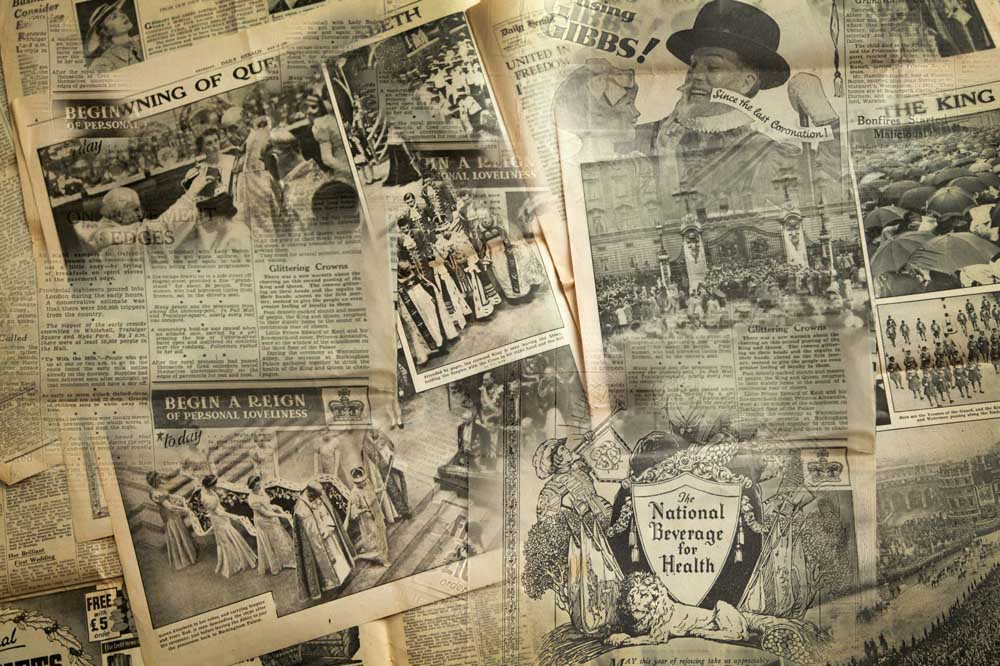Yesteryear: Two camps produce juniper for manufacture of pencils 100 years ago
Published 12:00 am Sunday, January 26, 2020

- Yesteryear
Compiled by the Deschutes County Historical Society from the archived copies of The Bulletin at the Deschutes Historical Museum
100 years ago
For the week ending
Jan. 25, 1920
Post office in its new home
According to schedule, the Bend post office executed a rapid change yesterday, moving from the Sphier building to its new home in the O’Donnell building on Wall Street. With the exception of the larger boxes, numbers were for the most part the same as those used in the old office, but combinations were changed, and Acting Postmaster Hudson was kept busy yesterday afternoon and part of this morning explaining the workings of the new locks to box renters. Post office fixtures are new throughout and while the number of boxes is not appreciably increased, the office room for postal officials is much greater, and the installation of the carrier system promised for April, is expected to remove any congestion.
Two camps produce juniper for manufacture of pencils
While many people in Central Oregon are not aware of the fact that Deschutes county is developing an industry which will utilize a form of timber thought very little of up to now, work is now well under way getting out juniper, which will be used in the manufacture of pencils in Bend, and as a cedar substitute.
It has been demonstrated that Central Oregon juniper is one of the best woods for the production of pencils and is going to be handled on a large scale soon.
The pencil factory in Bend is but a small part of the proposition as the timber will be shipped in car load lots soon to other parts for manufacture. Right now there are two camps in operation that are preparing the timber for shipment.
In one camp alone there are two tree pulling crews working an eight hour shift that averages 85 to 100 trees per crew per shift.
The trees are to be limbed and then sawed by gas power saws after which they will be bolted up and trimmed of all useless wood by other saws similar to those used in shingle mills for this purpose and then loaded on the cars. Roy Wilcoxen is in charge of these two camps which are located between Tumalo and Deschutes.
The pencil factory in the southeast end of Bend is nearing completion and Mr. C.S. Hudson is now in San Francisco purchasing the necessary machinery which will be installed in the near future.
It is said on good authority that the only word that excels Deschutes County Juniper for pencils timber is Tennessee cedar and that is getting scarce.
The story of how Bend came to get this industry is peculiar. An inquiry came asking for samples of wood for pencils and a man near Deschutes got the inquiry. Taking a piece of juniper from a neighbors fence, he sent it to Seattle and after considerable correspondence a contract was signed for a large amount.
Governor vetoes county fair
Governor Olcott today vetoed 32 measures, including the bill to establish the Deschutes county fair at Redmond, locating state highways and post roads, and the straight party bill.
In vetoing the county measure, the governor said “Under the general laws of our state, the establishment of locating these county fairs lies in the hands of the county courts of the respective counties. This is as it should be. To allow this bill to become a law, would to my mind, establish a dangerous precedent which might in the future lead to log rolling and trading.”
Bend High wins over Redmond in tough basketball game
In a much harder game than had been expected, the Bend high school basketball team won here last night from the Redmond high quintet, at the gymnasium by a score of 36 to 27. Redmond led at the end of the first half 19 to 17, but largely as the result of the deadly accuracy shown by Brosterhous in hitting the hoop, the Bend boys won out by a safe margin.
A feature of the game was the work done by Kidder, guard for the visitors. Although handicapped by the loss of an arm, he played a hard, fast game, and was by no means the easiest guard on the floor. Of Bend’s points, 22 were credited to Brosterhous, 10 to Helfrich, and four to Coyner.
The teams; Redmond — Bates and Doty, forwards; Buckley, center; Kidder and Holloway, guards. Bend — Loehr and Coyner, forwards; Helfrich and Hauck, guards; Buckley, center.
75 years ago
For the week ending
Jan. 25, 1945
Milk inspection to be discussed
Members of the Women’s Civic League will join the League of Women Voters at an open meeting tomorrow night at 8 o’clock in the Blue room of the Pilot Butte inn to hear a talk on milk and meat inspection by Dr. Wayne S. Ramsey, director of the Deschutes department of public health.
All persons interested in the present state-wide discussion of the pure milk problem are being invited by the League of Women Voters, organization sponsoring the meeting, to hear Dr. Ramsey. Tomorrow night’s meeting of the league has been postponed from the regular date, to make it possible for the health officer to be present.
City requests early opening of Deschutes fishing season
The city of Bend, today was officially on record as being opposed to the plan of the Oregon State Game commission to delay the opening of the fishing season on the Deschutes river south of Bend until May 12.
Declaring that the proposed opening date would “deprive the children of Bend a month of their favorite sport,” the city commission, at its meeting in the city hall last night, drafted a resolution to be forwarded to the game commission, asking that the date be set as of April 14. This date had been sought by local sportsmen, who at a meeting last week, also urged the commission to reconsider the plan to set the date on May 12.
The city’s resolution pointed out that it has been the custom of adult fishermen to give youngsters the almost exclusive right to fish the stream within the city limits. It also pointed out that with the gasoline shortage, it is impossible for the young Izaak Waltons to get to more distant “fishin’ holes.” The resolution was to be forwarded to the state game commission Jan. 27, when that body is scheduled to make a final decision on the opening date.
While the commission by this move demonstrated a kindly attitude toward Bend’s juveniles, it followed shortly thereafter by virtually scolding them for keeping late hours. It was pointed out that groups of both boys and girls of teen age are on the streets until as late as 4 o’clock in the morning. It was argued that it is the parent’s fault for not having their offspring in earlier, and considerable discussion centered around a proposal that the fathers and mothers be cited into court when their children are found out at unreasonable hours.
Frank O. Minor, pioneer, is dead
Frank O. Miner, 80, Bend Pioneer and one of the city’s early day postmasters, died yesterday at the Eastern Star and Masonic home in Forest Grove, according to word received by friends here today. The funeral will be held tomorrow at 3 p.m. at the Hollywood mortuary,
48th street and Sandy Blvd., in Portland, with the services being in charge of the Masonic service bureau.
Mr. Minor, aside from being active in Bend civic affairs during his residence here, also was a charter member of the Masonic Blue lodge.
Mrs. Minor, who had been residing with him at the Forest Grove Masonic home, and a son, Kenneth, employed in a Portland shipyard, survive him. Mr. Minor was born Jan. 19, 1865 in the east.
Coming to Bend in 1904, Mr. Minor soon thereafter became cashier for the Central Oregon Banking and Trust company, when this firm had a banking institution at the corner of Franklin avenue and Wall Street where the Standard Oil station now stands. When he severed his connections with this firm, Mr. Minor homesteaded several miles up the Deschutes river.
When Bend’s post office occupied a small frame building where the Brandis Thrift-Wise drug store now stands on Wall Street, Mr. Minor was postmaster under the administration of President Theodore Roosevelt. With the election in 1912 of Woodrow Wilson to the presidency, Mr. Minor left the postmastership.
On May 25, 1922 Mr. Minor became an employe of Brooks-Scanlon Lumber Company Inc., and worked in the company’s offices until November. 1940, when he and Mrs. Minor entered the Forest Grove home.
Headlines
Roosevelt inaugurated president 4th time — Germans fortify Berlin as Soviets draw near — Rockets can be sent to Moon, but funds are not yet available — Railroad shares bolster market — Gen. Joseph Stilwell named leader of U.S. ground forces
50 years ago
For the week ending
Jan. 25, 1970
Kiki upsets French winning special slalom
ST. GERVAIS, France — Kiki Cutter of Bend, Ore., today handed the French one of their rare defeats of the ski season when she came from behind to win the special slalom at the 12th International Women’s Grand Prix.
Miss Cutter, in winning her first event of the season on the eve of the world championships at Val Gardenia, Italy, had a total time of one minute, 32.58 seconds for the two runs over the 1,161 foot, 60-gate course which dropped 510 feet.
She was in third place after the first heat behind France’s Florence Steurer and Ingrid Lafforgue.
After the second run, Miss Lafforgue moved up to second with a time of 1:33.04 while Miss Steurer dropped to third in 1:33.17.
French girls also took fourth and fifth places with Annie Famose clocking 1:33.89 and Francoise Macchi 1:33.97. Favored Michel Jacob of France, the World Cup Leader, fell in the first heat.
Oregon bottle battle looms
The country’s first great bottle battle is likely to be waged in Oregon. Gov. Tom McCall has declared war on beverage bottles and cans which litter the countryside. “My commitment,” he told a civic group recently, “is to put a price on the head of every beer and pop can bottle sold in the U.S.”
He admitted the battle has to begin within the state. And it appears he’ll find strong support. A legislative interim committee is studying the possibility of banning non-return bottles and putting a 5-cent deposit requirement on every can and bottle of beverages sold.
A similar measure in the 1969 legislature was overwhelmed by lobbies amassed by the bottle makers, the can manufacturers and the bottling companies. That legislation would have banned returnable bottles and cans and required a 5-cent deposit on all beverage cans and bottles. The problems of cans and bottles littering the roadsides and the streams is not peculiar to Oregon. But because of the public attitude here now on environment, and because of the governor’s open declaration of war, the industries involved are already lining up their countering attacks.
The opposing forces will be face-to-face in Portland Feb. 2 when bottling associations from Oregon and Washington meet. They had invited McCall to speak to them, long before he declared open season on cans and bottles. Their invitation still stands.
Since the governor’s speech about the littering problem, several top officials of the bottling interests in Washington, D.C. have decided to attend the Portland meeting.
The industry’s big push will be promoting anti-litter campaigns and educating the public not to litter. As the National Soft Drink Association says “hands alone cause litter.” It then proceeds to list 50 ways to lessen litter, most dealing with education.
But Oregonians have rallied strongly in their battles to preserve the state’s environment. When the issue was before the last legislature, not only the governor and State Treasurer Robert Straub backed the ban on non-returnable, but 23 different conservation-minded groups took a similar stand.
State Sen. Robert Elfstrom of Salem, one of the co-sponsors of the dead bill, told his committee, “Oregon camping sites, fishing streams, lakes, and roadsides are becoming a garbage dump.” And some of the statistics might bear him out.
Edgar Grimes, representing the Linn County Farm Bureau, said each year some of his cows die from broken glass that gets into the hay from along the roads. He says that nails, broken glass and other roadside litter costs farmers at least $100 per animal a year, for each mile of road frontage.
During the cleanup of one mile of popular Oregon beach, 750 50-gallon drums of litter were collected. Eighty percent were beer cans and pop bottles. The bottling industry itself took some surveys in five states and came up with a “random, composite mile.” They collected: 1,652 pieces of paper, 396 cans, mostly beer; 254 bottle, mostly no-return; 59 assorted parts of cars, 12 items of clothing, and 86 miscellaneous items.
25 years ago
For the week ending
Jan. 25, 1995
Bend dam options: sink or swim
Federal regulators weighing the fate of a small hydroelectric dam that created Bend’s Mirror Pond 85 years ago are focusing on two choices: require fish ladders and screens, or shut down and take out the turbines.
The Federal Energy Regulatory Commission plans to review those alternatives and issue its final order by late April, barring unforeseen snags in a process that already has taken three years.
A draft environmental assessment issued a year ago indicated that the agency staff probably would recommend retirement of Pacific Power’s 1.1-megawatt project. The 560-foot-long dam provides enough electricity for only about 500 homes.
The U.S. Fish and Wildlife Service refused to back off its requirement of fish passageways to protect and enhance the Deschutes River’s trout fishery. The estimated price tag: $5 million.
Retirement is the cheaper alternative, costing Pacific Power about $250,000 a year by federal estimates. However, new data from Oregon’s Department of Fish and Wildlife persuaded the agency’s staff to add the option of a new 30-year license, with upstream fish ladders and downstream screens to protect fish from the dam’s turbines.
Rick Kruger, hydropower program leader with Oregon’s fishery agency, has determined that as many as 164,000 fish move downstream each year, many of which are swept into the powerhouse turbines. That is four times Pacific Power’s estimate in a 1990 study.
If the dam is licensed, it’s expected to produce about $466,000 worth of power a year, but required improvements would cost more than twice that each year, leaving a yearly red-ink pile of $514,000.
The federal energy agency recently issued a new ruling on decommissioning hydro projects. The agency concluded that it lacks the authority to require new fish passageways if a project is retired, said Joe Smith, environmental coordinator with the agency in Washington, D.C.
“The commission can take one of our alternatives, and they might come up with their own,’ Smith said. “It’s quite possible that the commission will go ahead and issue the license.”
Smith said the agency would rather not require fish passage improvements until similar measures are taken a mile downstream at the North Canal dam, where most of the river is diverted during the summer for irrigation. However, the federal fishery agency is requiring immediate improvements, if a new license is granted.






